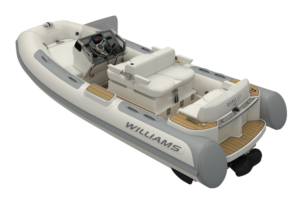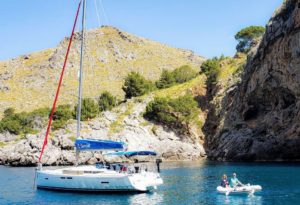18 Vendée Globe competitors fitted with Oscar AI

Over the last eight editions of the Vendée Globe, only 53% of the entries have completed the course. The other 47% have been forced to retire with gear failure or personal injury, but often due to a collision that has caused irreparable damage.
Fortunately, this year, says BSB Marine, the risk of collision will be significantly reduced. Many of the competing IMOCAs have been fitted with a new electronic safety aid called Oscar. Using day and thermal cameras combined with artificial intelligence, this provides a second set of ‘eyes’ for the solo skipper both during the day and, crucially, at nighttime as well.
Oscar’s aim is to prevent a collision with any of the many potential threats a vessel can encounter at sea, be they other vessels, unidentified floating objects such as logs, buoys or containers, as well as sleeping sea mammals, any of which could put a skipper out of the race, or worse. In practice, Oscar instantly alerts the skipper of any potential danger and indicates the position of that threat on a dedicated map. The skipper can view and record the images transmitted from Oscar’s cameras.
French offshore racing skippers and their teams have been quick to adopt Oscar – among them Vendée Globe former winners Vincent Riou, François Gabart and Armel Le Cléac’h, who helped develop the system’s specification.
This Vendée Globe will be Oscar’s most severe test to date. 18 of the 33 IMOCA competing have been fitted with the latest OSCAR system. This comprises a compact, lightweight masthead-mounted box containing forward-looking day and night cameras, linked to Oscar’s processor down below that in turn connects to any type of display.
The system is said to improve with every mile sailed, as it learns from its experiences and thus performs better. The 18 IMOCAs it is fitted to in this Vendée Globe will each provide huge learning opportunities to fine tune the database, at the core of the system’s learning.
“I remember in the Volvo Ocean Race in 2014 when I was at the helm, not far from the African coast – we were sailing very fast, at over 20 knots under the big gennaker, with a full crew on board,” says Samantha Davies, Initiatives Cœur.
“I heard a scream as a tiny little light passed about 50 cm from the edge of our boat. It was a wooden fishing boat with no light and the guy just raised a torch when he was right next to us. We couldn’t see him, we wouldn’t have seen him on the radar, we wouldn’t have seen him with our eyes and we almost killed the guy.
“That’s the scariest part for me – of course we can damage our boat, which might force us to abandon a race, but we have to do everything we can to avoid damaging other people as well. One of the reasons I put Oscar on Initiatives Coeur is because of that memory – and that was in a fully crewed race. When I’m alone on a boat, it’s even harder to see people. Oscar, for sure, would have warned us of a situation like that.”










